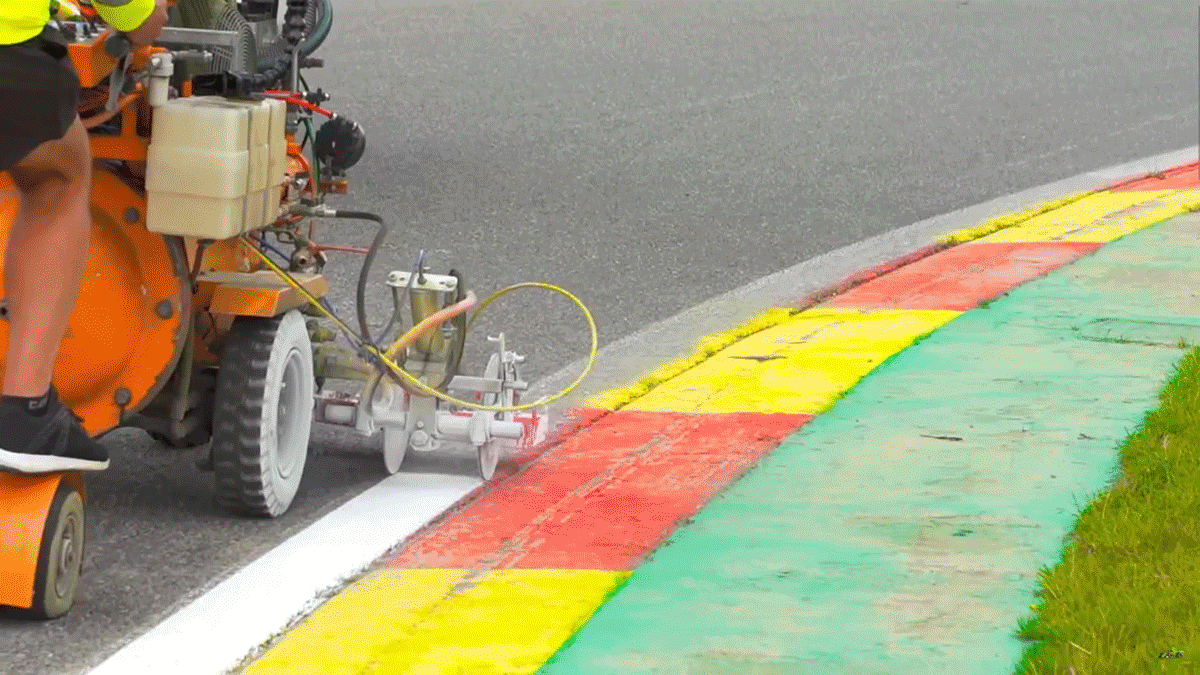Most Formula 1 fans don’t think about a circuit’s painted lines unless their favorite driver is exceeding track limits. However, it’s a colossal effort to ensure that all the lines are properly laid down and the runoff areas have the correct designs before a Grand Prix weekend. While the process includes FIA-homologated paint, age-old brushes, string and masking tape are still relied upon to keep edges sharp.
Matt Amys joined Roadgrip, the leading line-marking contractor for international motorsport, during preparations for this year’s Belgian Grand Prix. Roadgrip’s Oli Middleton told Amys, “With Spa being seven kilometers around, it’s quite a considerable amount of linear meterage. 7,000 meters round. Two edge lines. There’s 14,000 meters of line before you even start doing the grid and the pit lane.” That’s 8.7 miles of white lines!
The painting protocol was thrown a curveball recently with the introduction of AI to track limit monitoring. As a result, a light blue line needs to be painted just behind the typical track boundary so the software can distinguish between valid driving and violations on the camera feed. However, race organizers can also butt heads with officials because they want the track to fit a desired aesthetic.
For example, the Belgian Grand Prix provides Roadgrip with the designs for the runoff areas. Spa-Francorchamps goes with a striped red-yellow design that blends with the black pavement and echos Belgium’s tricolor national flag.
Roadgrip uses Samoline’s Antislip paint. While the paint minimizes the loss of traction for cars racing in the rain, its abrasive nature can make application difficult. The grit can clog air-mix paint sprayers and require constant maintenance to keep the paint flowing. Alongside compressed air machines, the contractor uses string and masking tape to keep lines straight. So the next time Lando Norris gets a warning for track limits, rest easy knowing that the paint was put down more accurately than the McLaren driver’s racing line.

